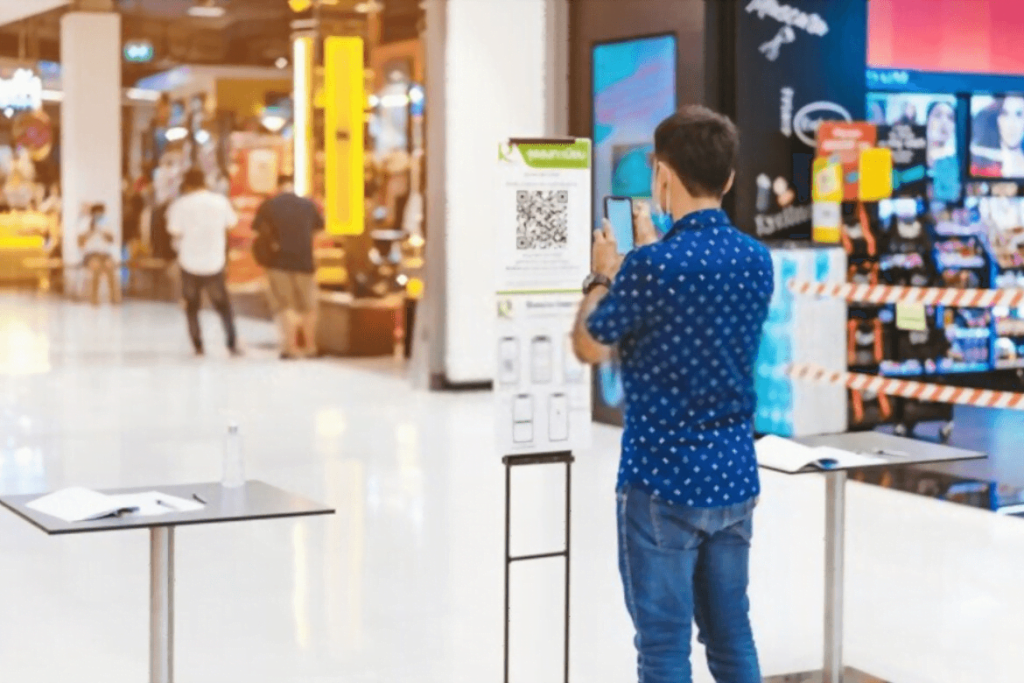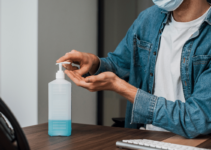The coronavirus pandemic has placed everyone on alert worldwide. People are taking better care of their health and becoming more careful when it comes to personal hygiene.
For ex-pats and foreigners living in Thailand, the COVID situation has created some uncertainty. While following the local news can provide good updates about the coronavirus across the country, the information is not always reliable.
What You’ll Learn in this Article:
- What Are The Symptoms Of COVID-19?
- How Can I Stay Safe From COVID In Thailand?
- How Do I Get Tested For Coronavirus In Thailand?
- What Happens If I Test Positive For COVID In Thailand?
- What Are The Thailand COVID Travel Restrictions?
- How Do I Get COVID Insurance In Thailand?
It can also be difficult for expats to know what to do if they think they might have COVID or if they want to get a test for coronavirus in Thailand.
This guide aims to provide clear and simple information for ex-pats and foreigners in Thailand about the current COVID-19 pandemic.
All information in this guide is correct at the time of writing. We will update this COVID-19 guide regularly as new details and information for expats emerge.
Note: This guide is not intended as a substitute for professional advice and treatment for COVID-19. It is essential that you speak with a qualified doctor or physician if you need help with your medical condition.
COVID-19 Visible Symptoms
The symptoms of COVID-19 can range from none at all to severe. You may display only mild symptoms akin to a common cold if you have caught the virus. Some of the more commonly reported symptoms of COVID-19 are as follows:
- Coughing
- Fever
- Shortness of breath
- Difficulty breathing
- Loss of taste
- Loss of smell
- Pneumonia
- Severe acute respiratory syndrome
- Kidney failure
People who catch COVID-19 and have a previous medical condition such as kidney-related diseases, lung-related diseases, or congenital heart diseases may suffer complications from the virus.
Other people who are categorized as high-risk if contracting coronavirus include children under two years old, those with a weak immune system, pregnant women, and people over the age of 60.
Staying Safe From COVID-19 In Thailand
There are multiple official guidelines designed to help people stay safe from COVID-19 and reduce the chances of catching the virus.
In Thailand, it is very common to see people wearing face masks at all times when outside of their home. Many companies in Thailand have also put in place work from home schemes to keep the number of people visiting an office to a minimum.
Another system put in place in Thailand is self-isolation or self-quarantine. People who visit at-risk provinces or places in Thailand are usually required to stay at home for at least 14 days to help prevent the spread of COVID.
The World Health Organization (WHO) has also published basic measures that everyone can do to prevent spreading or contracting COVID-19, including:
- Washing hands regularly for at least 20 seconds with soap and water
- Using alcohol hand sanitizer regularly
- Covering your nose and mouth with a tissue when sneezing or coughing
- Sneezing or coughing into your elbow rather than your hands
- Social distancing by at least one meter when in public
- Avoiding touching your mouth or nose with unwashed hands
- Regularly clean surfaces and objects such as your phone
- Wear a face mask when in public
You will find people in Thailand adhere strictly to most of these rules, and as an ex-pat living in the country, it is important that you abide by the rules also.
Getting Tested for Coronavirus in Thailand
Depending on your circumstances, you may need to get tested for COVID-19. If you are unsure whether you require a coronavirus test or not, you can refer to the table below as a general guide.
| Symptoms | Contact With COVID Patient | Traveled To High-Risk Area | Suggested Action |
|---|---|---|---|
| No | No | No | Stay home |
| No | Yes | Yes | Stay home and self-isolate for 14 days |
| Mild (cough, fever, sore throat) | No | No | Stay home and self-isolate for 14 days |
| Mild (cough, fever, sore throat) | Yes | Yes | Should get a COVID test |
| More severe (high fever, loss of taste, fatigue, shortness of breath) | No | No | Should get a COVID test |
| Severe & high-risk (age over 60, previous medical conditions, chest pain, etc.) | No | No | Should get a COVID test |
While the information in the table above is good for understanding whether or not you need to get tested for COVID, you can still go to a hospital in Thailand for a coronavirus test at any time.
Public or government hospitals in Thailand accept foreigners for coronavirus testing. However, unlike locals, ex-pats will need to pay a fee to get a COVID test at a government hospital.
Private hospitals in Thailand also offer COVID testing for foreigners. You can check the website of your nearest private hospital to find out more information about the procedure and timeframe.
Prices for coronavirus testing in Thailand range from a few hundred baht to a few thousand baht depending on where your test is done.
If you have health insurance from a local provider such as the health insurance plans for ex-pats listed on Mister Prakan, your insurance policy should cover the price of COVID testing and other coronavirus-related medical expenses.
Testing Positive for COVID in Thailand
In Thailand, when COVID tests are administered the facility must report to the Center for Disease Control if a positive result is returned.
Should you test positive for coronavirus in Thailand, the hospital will notify you immediately and require you to admit yourself into a designated facility for monitoring.
You will also need to report your movements from the last few weeks, including places visited, people you interacted with, and other details.
If you are using the “Mor Chana” Thai government tracking app, the information from the application will be used to see where you have checked in and out of over the past few weeks.

If members of your family do not show any signs of COVID-19 after you have tested positive, they will need to stay at home and self-isolate for a minimum of 14 days.
However, if they are displaying severe symptoms such as loss of taste or shortness of breath, they will need to go and get tested for coronavirus also.
If you suspect that you or your family has COVID-19 or has come into contact with someone who has tested positive for the coronavirus, you can call the Office of International Cooperation (OIC) on +66 (0) 96 847 8209.
COVID Travel Restrictions Thailand
Travel restrictions into Thailand have been in place since early 2020. However, the Thai government is consistently updating the groups and categories of people who are allowed to enter the country.
Those who do come to Thailand must present a certificate showing they have health insurance covering COVID-19 for a minimum of USD 100,000.
All arrivals in Thailand must also stay in an Alternative State Quarantine (ASQ) hotel or facility for 14 nights and self-isolate there.
You can find out more information about COVID travel restrictions in our COVID Insurance Thailand Latest Travel Requirements & Updates guide.
COVID Insurance for Ex-Pats in Thailand
If you already have health insurance in Thailand, you should contact your insurance provider and make sure that you are covered for any and all COVID-related medical expenses.
Due to the nature of the coronavirus, it is uncertain how long you will require medical treatment if you catch the virus. Therefore, having a solid insurance plan is absolutely essential.
If you do not already have health insurance in Thailand, or you are close to renewal and want to look at some new options, we highly recommend using Mister Prakan.
They offer insurance policies that include COVID-related expenses and are designed specifically for ex-pats and foreigners living in Thailand.
We will update this guide with the latest information and updates as it is revealed. If you have experience with COVID testing in Thailand or you think we have missed any important information, please let us know in the comments below.


